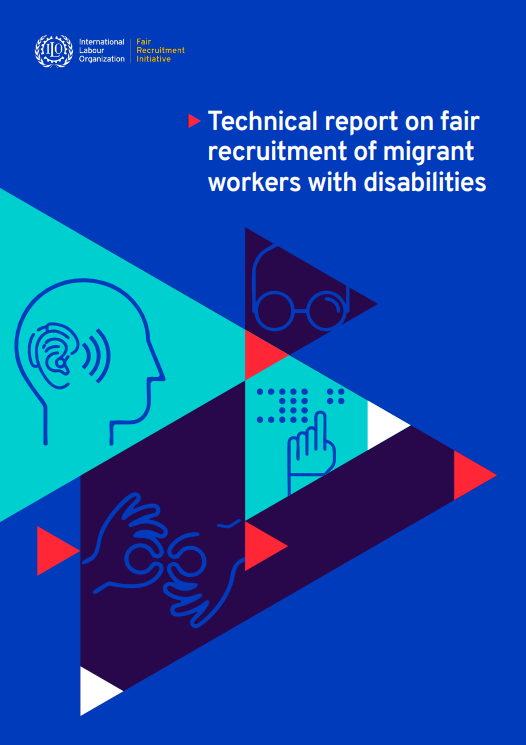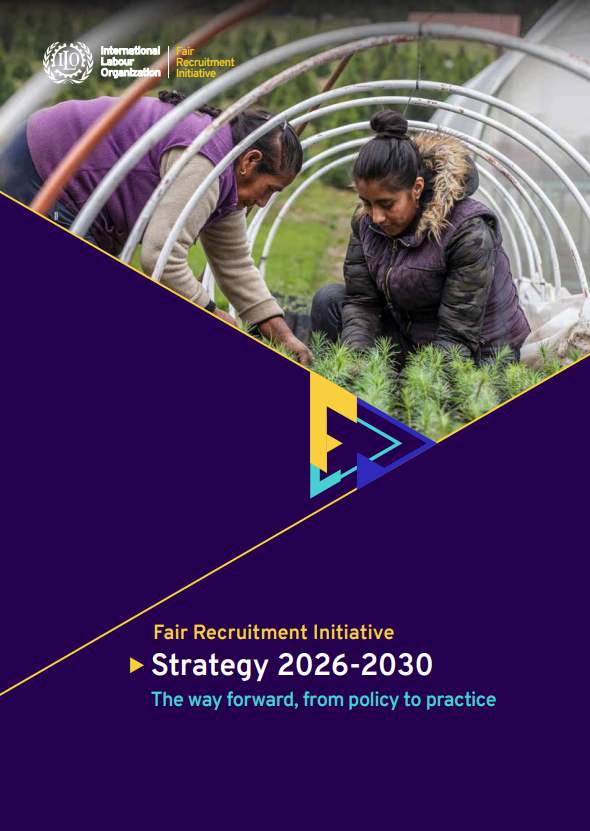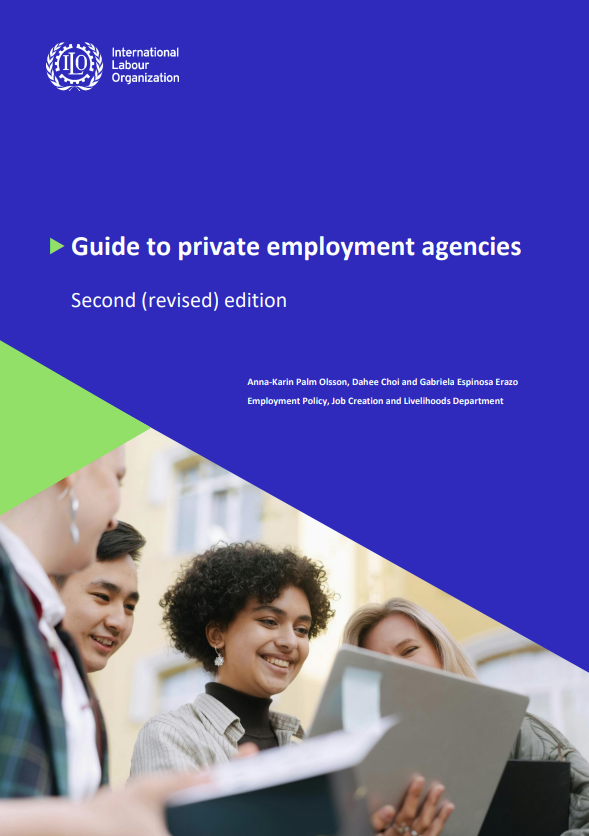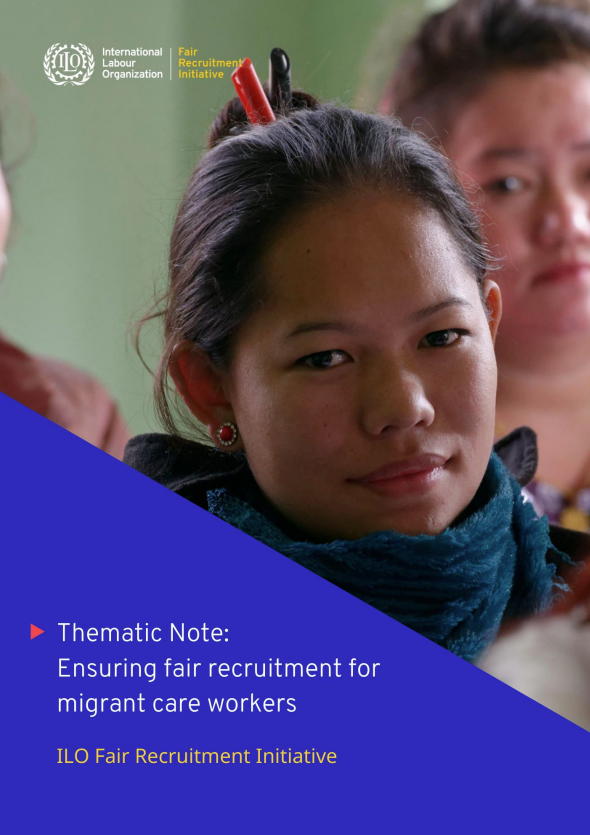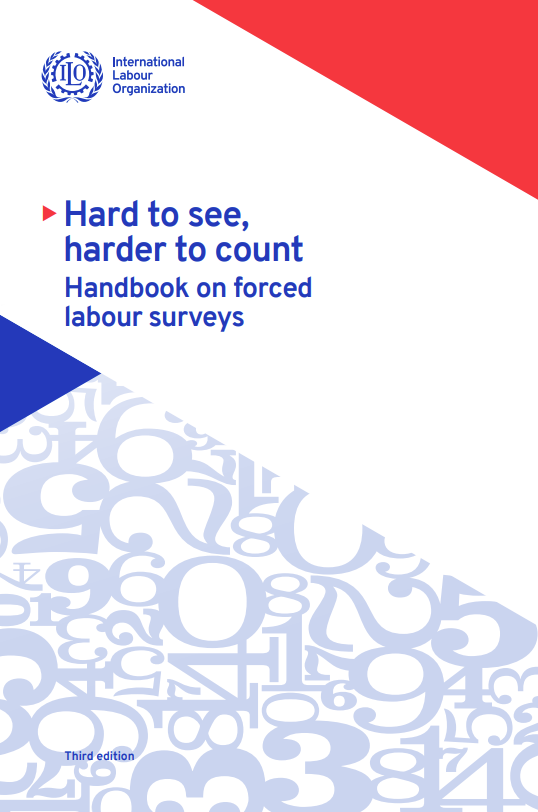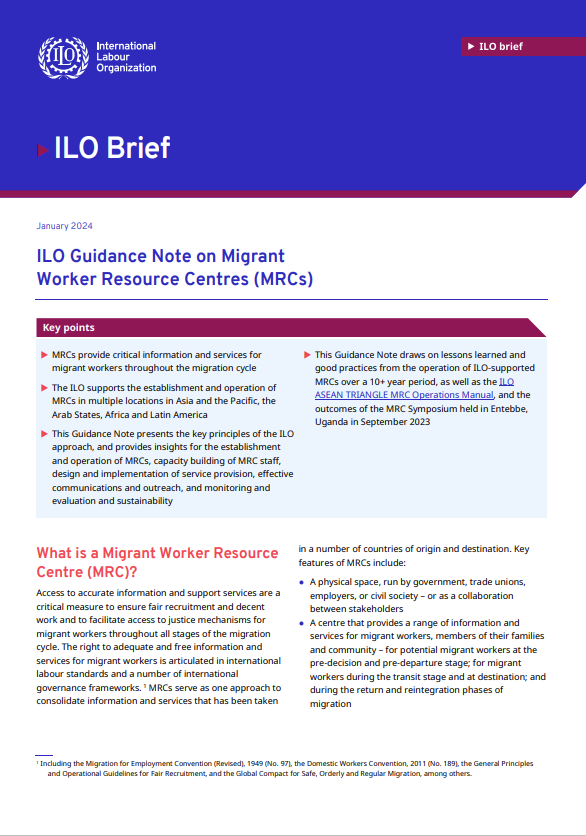Technical report on fair recruitment of migrant workers with disabilities
The International Labour Organization (ILO) is committed to advancing fair recruitment practices that respect human rights and promote decent work for all. Since its launch in 2014, the ILO Fair Recruitment Initiative (FRI) has sought to ensure that recruitment processes are con-ducted in a fair, transparent, and inclusive manner, guided by international labour standards and rooted in the principles of equality and non-discrimination.
This technical report on fair recruitment of persons with disabilities, with a specific focus on migrant workers, represents an important step toward filling a critical knowledge gap at the intersection of disability inclusion, migration, and recruitment. While the ILO’s General Principles and Operational Guidelines for Fair Recruitment underscore the importance of non-discrimination, explicit guidance on the inclusion of persons with disabilities, particularly mi¬grant workers, remains limited.
By examining existing literature, identifying key challenges and good practices, and situating these within the framework of relevant ILO standards, this brief seeks to lay the groundwork for more inclusive recruitment policies and practices.
References
- DOI: https://doi.org/10.54394/BUNS0985
Type of document :
Country/Region :
Year of publication :
Theme : , ,
UN Forum Session: “Labour Migration, Business and Human Rights in Times of Transition”
Posted at December 4th 2025 12:00 AM | Updated as of December 4th 2025 12:00 AM
Region/Country : ,
|Themes :
ILO indicators of forced labour - 2025 revised edition
The revised 2025 edition of the ILO Indicators of Forced Labour provides frontline actors with practical tools to detect forced labour. Grounded in decades of research, it highlights the most common indicators and explains how to interpret them in real-world contexts. This concise guide can also support referral and formal indetification processes, prosecution and data collection.
Forced labour remains one of the most severe violations of human rights, affecting millions of people around the world. This booklet translates international standards into operational indicators to help practitioners identify potential victims and trigger further investigation.
It outlines the most frequent signs of coercion and lack of consent, illustrated with real cases, and offers guidance on what to look for. Designed for labour inspectors, law enforcement, social workers, employers, and others who may encounter victims, these indicators are not exhaustive but serve as a flexible, evolving tool to support detection, referral, and data collection in the global fight against forced labour.
Type of document :
Country/Region :
Year of publication :
Theme :
Combating forced labour - A handbook for employers and business
An ILO-IOE practical handbook to help companies and employer organizations prevent and address risks of forced labour. Grounded on international labour standards, it offers practical tools for due diligence based on the 11 indicators of forced labour.
Forced labour affects more than 27 million people worldwide, cutting across borders, sectors, and supply chains. Companies and employer organizations have a vital role to play in eradicating this pervasive abuse.
The ILO and IOE published the first edition of Combating Forced Labour: A Handbook for Employers and Business in 2008, followed by a second edition in 2015. This third edition provides updated, practical guidance to help companies identify, prevent, and mitigate risks of forced labour within their operations and supply chains.
It is grounded in international labour standards, including the ILO Forced Labour Convention, 1930 (No. 29) and its 2014 Protocol, as well as internationally recognized frameworks on business and human rights: the United Nations Guiding Principles on Business and Human Rights (UNGPs) and the ILO Tripartite Declaration of Principles concerning Multinational Enterprises and Social Policy (MNE Declaration).
The handbook uses the ILO definition of forced labour and its 11 indicators to help identify and assess risks in practice.
Who is it for?
The primary audience includes companies (management, human resources, procurement, legal, compliance, and sustainability officers); employer and business membership organizations (EBMOs); industry associations; multi-stakeholder platforms supporting responsible business conduct (RBC); and other actors involved in human rights due diligence (HRDD).
Type of document :
Country/Region :
Year of publication :
Theme :
Fair Recruitment Initiative Strategy 2026-2030: The way forward, from policy to practice
The Fair Recruitment Initiative (FRI) was launched by the ILO in 2014 to ensure fair recruitment of workers at the national and international level, bringing renewed visibility to this important issue. Over the years, the FRI has become a central pillar of the ILO’s Fair Migration Agenda and has strengthened collaboration among governments, employers, and workers to ensure transparent recruitment practices that protect workers' rights and uphold international labour standards through social dialogue and fair treatment.
The Fair Recruitment Initiative Strategy 2026–2030 sets a clear path forward: moving from principles and guidance to practical implementation and enforcement, to make fair recruitment a reality for all workers, across all sectors and countries, within and across borders. The new strategy was conceived as an inclusive process, reflecting evidence and data collected across countries, key migration corridors and high-risk sectors to ensure targeted interventions that tackle emerging challenges.
This work builds on a decade of experiences, achievements, and lessons learned. This new strategy has also benefited from the rich exchanges and inputs generated during the Global Conference “Fair Recruitment Initiative: The way forward, from policy to practice”, held in May. This conference, that brought together government officials, employers' and workers' representatives, recruitment agencies, international organizations, and researchers provided valuable guidance for moving from policy commitments to practical implementation. This tripartite high-level discussion served as a platform to review progress, explore practical solutions, and strengthen collaboration with stakeholders. The event marked the launch of this new strategy, reaffirming a common commitment to advancing fair recruitment through collective action.
Content available in English, español and français.
Type of document :
Country/Region :
Year of publication :
Theme : , ,
Guide to private employment agencies - second (revised) edition
Private employment agencies are increasingly shaping the world of work - connecting job seekers to opportunities, helping employers meet skills needs, and supporting more dynamic labour markets. Yet with this growing influence comes responsibility: promoting fair recruitment, protecting workers’ rights, and maintaining trust in labour market systems.
Why This Guide Matters
This revised Guide provides governments, employers, workers, and practitioners with a comprehensive framework for fair, transparent, and effective employment services. It highlights the vital role PrEAs play in improving labour market functionality while focusing on two key pillars: labour market alignment and fair recruitment practices.
Responding to Today’s Labour Market
Rapid changes - from digitalization and demographic shifts to migration and the green transition - demand flexible, robust regulatory systems. This Guide shows how PrEAs can adapt by strengthening oversight, leveraging digital tools, and aligning with international labour standards.
Partnership is Key
Drawing on ILO Conventions No. 181 and No. 88, the Guide emphasizes collaboration between public and private employment services. Strategic partnerships improve job matching, strengthen active labour market policies, and expand access to opportunities for those in vulnerable situations. Practical examples, from common terminology and shared digital platforms to joint monitoring systems, show how cooperation enhances efficiency and fairness.
Fair Recruitment: A Shared Responsibility
Fair and transparent recruitment is essential for all workers, especially for migrant workers. Embedding these principles across employment services strengthens trust and advances decent work globally.
A Call to Action
This Guide is more than a reference - it’s an invitation to act. Governments can create responsive frameworks, employers and PrEAs can uphold high professional standards, and workers’ organizations can ensure voices are heard. Together, we can make labour markets more inclusive, transparent, and fair.
This content is avalailbe in English and Español.
Type of document :
Country/Region :
Year of publication :
Theme : ,
Thematic Note: Ensuring fair recruitment for migrant care workers
This Note explores some of the key fair recruitment challenges for migrant care workers and outlines key policy priorities.
Type of document :
Country/Region :
Year of publication :
Theme : , , ,
Hard to see, harder to count: Handbook on forced labour surveys
This revised version of the "Hard to see, harder to count" handbook provides an updated set of tools for the design, implementation and analysis of quantitative surveys on the forced labour of adults.
Data collection and analysis lie at the heart of sustainable action to combat forced labour. Reliable statistics are essential to understand the nature and extent of the problem, its causes and consequences, and to inform the efforts of policy-makers and other stakeholders against forced labour. Regular data collection also enables the assessment of progress and impact of policy implementation, action plans and specific programmes and projects to eradicate forced labour.
The 20th International Conference of Labour Statisticians (ICLS) in 2018 endorsed, for the first time, Guidelines Concerning the Measurement of Forced Labour. In 2022, the ILO, Walk Free and the International Organization for Migration (IOM) published “Global Estimates of Modern Slavery: Forced Labour and Forced Marriage”. This was the fourth effort by the ILO to produce global regional estimates of forced labour (2005, 2012, and 2017) and the first global estimates published after the adoption of the ICLS Guidelines. In addition, a total of 17 national and sectoral forced labour prevalence surveys have been undertaken with ILO support since 2018.
In 2012, the ILO published the handbook Harder to See, Harder to Count, the first practical guidance on forced labour prevalence surveys. Based on new ICLS guidelines, and drawing on the lessons learnt from the subsequent global estimates exercise and forced labour prevalence surveys, this version 2.0 of the Hard to See, Harder to Count handbook presents an updated measurement framework and set of tools for the design, implementation and analysis of surveys of forced labour. The revised handbook presents a new unified set of core indicators of involuntary work and coercion and contains two new dedicated chapters, one on research ethics and the other on state-imposed forced labour.
Starting with an introductory discussion of legal and conceptual frameworks (Chapter 1), the handbook takes a researcher sequentially through all the key stages of a forced labour survey, from initial stakeholder consultations, the conduct of a preliminary scoping study, and the identification of the survey scope and research questions (Chapter 2), to the selection of the survey type and modality (Chapter 3), sample design (Chapter 4), questionnaire design (Chapter 5), fieldwork (Chapter 6) and finally to data analysis (Chapter 7). It also covers key ethical considerations across all these survey stages (Chapter 8). Chapter 9 offers specific guidance to researchers for the measurement of state-imposed forced labour.
Type of document :
Country/Region :
Year of publication :
Theme : ,
ILO Brief: ILO Guidance Note on Migrant Worker Resource Centres (MRCs)
Migrant Worker Resource Centres (MRCs) provide critical information and services for migrant workers throughout the migration cycle. This Guidance Note presents the key principles of the ILO approach, and provides insights for the establishment and operation of MRCs, capacity building of MRC staff, design and implementation of service provision, effective communications and outreach, and monitoring and evaluation and sustainability.
Content available in english or español.
Type of document :
Country/Region :
Year of publication :
Theme :
ITC-ILO Global training in Doha strengthens action toward fair recruitment and labour rights
Posted at October 28th 2025 12:00 AM | Updated as of October 28th 2025 12:00 AM
Region/Country :
|Themes :
Subscribe to the Fair Recruitment Initiative Newsletter
Sign up to receive news delivered to your inbox.

